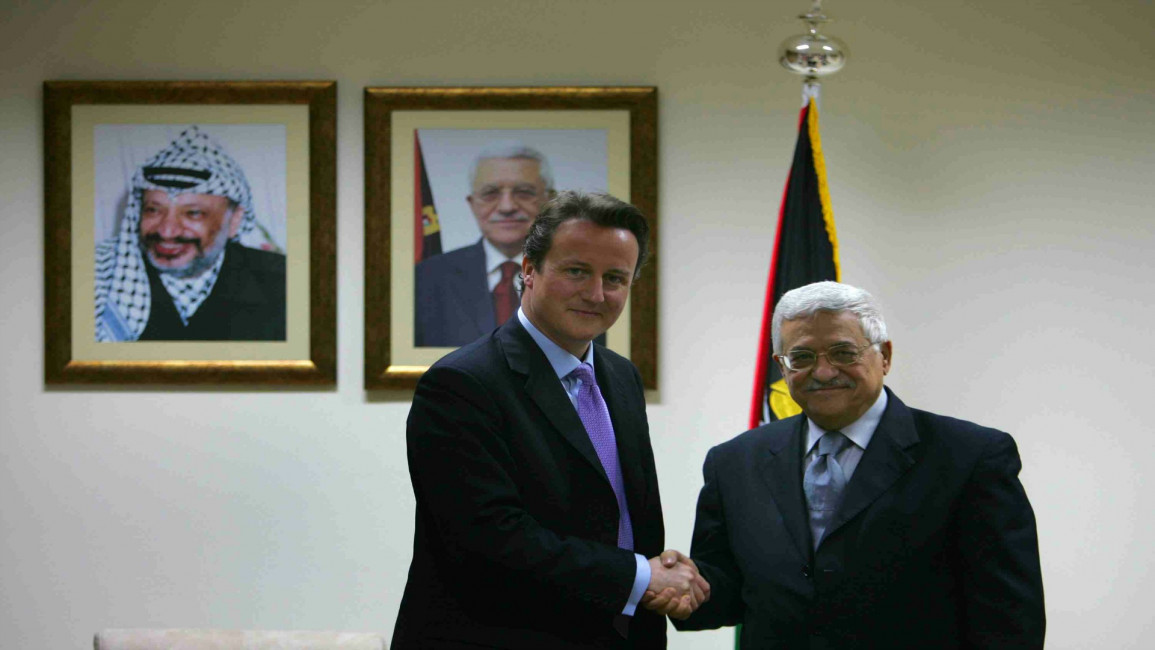
Is Britain backing the French over Middle East peace?
However, the UK is yet to commit its support to the proposal, which aims to relaunch Israel-Palestinian negotiations, despite Washington-led talks having continually stalled and come to a standstill under President Obama.
Hammond met with Pierre Vimont, France's special envoy for the initiative. French Foreign Minister Jean-Marc Ayrault is looking to secure broad European support to enable his country to proceed with the conference with authority.
So far, the Palestinian Authority, EU Foreign Affairs chief Federica Mogherini and several European states - notably Spain and Italy - have offered their backing. If the UK government were to support the plan, it would provide a significant boost to the chances of the conference materialising.
The proposed conference would pick up where US-brokered talks collapsed in April 2014, after the formation of a Palestinian unity government backed by Hamas.
Although Israel scorned the new Palestinian "national consensus" government, in fact Hamas wielded very little power, with the government containing none of its ministers, a condition insisted upon by the US.
Initial proposal
The peace conference was first proposed by outgoing French Foreign Minister Laurent Fabius, who accompanied the idea with a warning: if Israel did not participate, France would recognise Palestine as a sovereign state.
Since then, Fabius' successor Ayrault has backtracked, stating that recognition would not be an automatic consequence. By retreating on the recognition "threat", Ayrault hopes the chances of Israeli participation will increase.
The French currently see the two-state solution as the only viable option for peace between Israel and the Palestinians.
European power
Ten EU countries are among 136 (of 193 in the world) to so far recognise the Palestinian state. The UK recognised Israel in 1950, but is yet to recognise Palestine, over which it held a mandate for decades.
 |
Europe's Middle East ministers will be waiting on the UK's decision |  |
The EU Council of Ministers is not likely to reach a unanimous decision on recognition, as that requires 28 states to agree. This leaves more powerful Western European countries as the most able on the continent to push for the resumption of peace talks.
Germany, for historical reasons, will not take the lead. France has already put forward it proposal, so Europe's Middle East ministers will be waiting on the UK's decision. The UK also retains the option of recognising Palestine if Israel continues its intransigence in the face of international law.
UK parliament
Members of the UK parliament have been pressing the foreign secretary to seriously consider the French proposal. Former Middle East minister Ben Bradshaw was among the proponents of the French plan, and wrote to Hammond, receiving this reply: "We are discussing with the French to explore their idea, which is still at an early stage…. We will continue to engage with the French as they develop their plans."
Last week, British Members of Parliament raised concerns about the situation in Israel and Palestine with Middle East Minister Tobias Ellwood. Ellwood reported to MPs that the Israeli government remains "committed to the two-state solution" although he also stated "we cannot continue with the status quo".
Twitter Post
|
MPs pressed Ellwood on the UK's response to Israel's accelerating rate of home demolitions, which has quadrupled when compared with 2015, and has displaced 650 Palestinians so far in 2016, but he declined to respond.
On the question of administrative detention, Ellwood explained that the UK was working closely with Israel to support them in changing their approach. The minister described detentions as a "retrograde step".
Abbas' approach
Meanwhile, in France, Palestinian President Mahmoud Abbas met with French President Francois Hollande to offer his full support for the French proposal, as part of the continuation of his policy of pursuing diplomatic approaches to ending the occupation.
As well as enthusiastically supporting the French plan, the Palestinian Authority is looking at submitting a new draft resolution to the United Nations on illegal Jewish settlements in the occupied West Bank.
The resolution will explicitly condemn the settlements as illegal under international law, the first such resolution since one vetoed by the US in 2011. The 2011 resolution secured the support of the UK, France and Germany.
 |
Israel is aware of the corrosive effect on its credibility by the steady diplomatic progress being made by the Palestinians |  |
Israel's approach
The Israeli government shows no signs of softening its positions, with Prime Minister Binyamin Netanyahu responding to Abbas' latest diplomatic manoeuvres via his Twitter account: "The only way to advance peace is by direct negotiations and Abu Mazen is avoiding this."
Nevertheless, Israel is aware of the corrosive effect on its credibility by the steady diplomatic progress being made by the Palestinians. Israel will be keen that the UK does not grow tired of the continued stalling of the peace process and a deteriorating situation on the ground.
So far, the UK has chosen to err on the side of caution and has balanced its official position of opposing illegal Israeli policies with de facto acceptance of them by not taking concrete steps to oppose them.
Joining the French in a European-led peace initiative would not bring immediate relief to the Palestinians under occupation, but might indicate to Israel that the era of automatic European cover for US-Israeli oppression of the Palestinians is nearing its end.
Tom Charles is a London-based writer, editor and literary agent. He previously worked in the UK parliament, including as a lobbyist for Palestinian rights. He has contributed to Jadaliyya and the Journal of Palestinian Refugee Studies. Follow him on Twitter: @tomhcharles
Opinions expressed in this article remain those of the author and do not necessarily represent those of The New Arab, its editorial board or staff.




